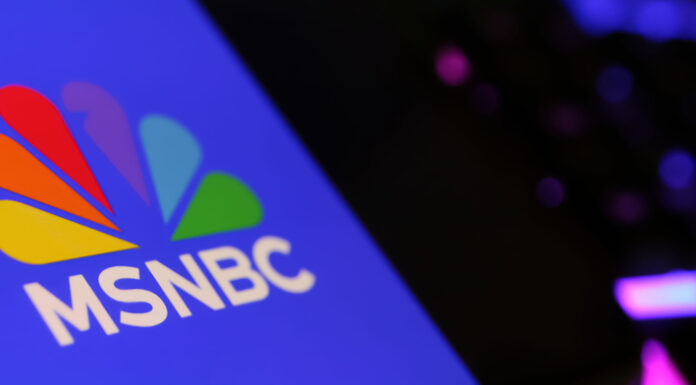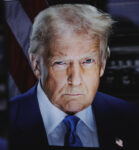MSNBC host Lawrence O’Donnell criticized President Donald Trump’s second term on Tuesday night, July 8, 2025, labeling it the stupidest presidency in U.S. history, and commented on the press corps covering it.
O’Donnell expressed his views on “The Last Word” following a Cabinet meeting held by Trump earlier that day. Known for his longstanding criticism of Trump, O’Donnell previously took a break from his show in March, citing exhaustion just 52 days into covering Trump’s presidency.
The MSNBC anchor drew an analogy between Trump’s presidency and a TV script, noting that a fictional president characterized by stupidity would typically rely on intelligent staff and avoid press interactions to prevent exposure of his shortcomings.
However, O’Donnell claimed that the current situation is different. He asserted that Trump’s presidency is the stupidest in U.S. history, with an equally ineffective press corps that fails to highlight his errors adequately.
O’Donnell referenced an incident during the Cabinet meeting where CNN’s Kaitlan Collins asked Trump about the unauthorized halting of military aid to Ukraine. Trump’s response was: “I don’t know. Why don’t you tell me?” He then proceeded to another question.
According to O’Donnell, previous presidents would not have responded dismissively to such significant inquiries. He suggested that Trump has instilled a sense of intimidation among the White House press corps, leading to a lack of follow-up on his non-answers.
O’Donnell also criticized the presence of Trump-supporting reporters within the White House press corps, arguing that their inclusion has undermined the intended role of the press corps.
This criticism arises amid Trump’s administration intensifying its stance against specific media organizations. Actions include threats to reduce federal funding for NPR and PBS, restricting Associated Press reporters from events, and taking control over the media pool traditionally managed by news organizations.
A significant dispute involves the Associated Press’s refusal to adopt Trump’s renaming of the Gulf of Mexico to the Gulf of America. The AP continues to use the original name while acknowledging Trump’s executive order.
White House Press Secretary Karoline Leavitt justified the exclusion of AP reporters, stating that White House coverage is a privilege and that outlets disseminating falsehoods will face repercussions. Leavitt claimed it is a fact that the body of water off Louisiana’s coast is called the Gulf of America.
The Associated Press has filed a lawsuit against the government, arguing that such restrictions breach the First Amendment. AP Executive Editor Julie Pace stated the White House is penalizing the organization for its editorial decisions, contravening constitutional principles.
Trump’s administration has also targeted public broadcasting through an executive order to cut funding for NPR and PBS, alleging that these organizations use taxpayer money to propagate radical left-wing narratives under the guise of news.
Congress has already approved approximately $535 million for public broadcasting this year, with allocations spanning until September 2027. The House recently voted in favor of Trump’s proposal to eliminate $1.1 billion in public broadcasting funding over two years, pending a Senate vote.
PBS President Paula Kerger described Trump’s order as unlawful, emphasizing that Congress established public broadcasting to be independent of presidential influence. NPR CEO Katherine Maher argued that the funding cuts would violate federal statutes and the First Amendment.
The administration has enacted additional measures against media organizations, including expelling eight news outlets from Pentagon offices and Trump’s legal action against CBS News regarding the editing of a 60 Minutes interview with Kamala Harris.
Simultaneously, the White House has granted access to pro-Trump outlets like the Epoch Times and One America News. Officials assert this inclusion brings diverse perspectives, while critics claim it aims to favor supportive coverage and penalize critical reporting.
Trump has accused the Associated Press of inaccuracies regarding the 2020 election and bias against him and the Republican Party. He stated that the restrictions would remain until news outlets comply with his expectations.
O’Donnell’s critiques of Trump are not new, as the TV host has consistently questioned Trump’s intelligence and policies, occasionally issuing corrections or apologies for his remarks.
The White House Correspondents Association has denounced the administration’s actions against the Associated Press, asserting that the government lacks the authority to dictate journalistic practices or penalize journalists for editorial decisions.
Press freedom advocates have also condemned the administration’s tactics. The Foundation for Individual Rights and Expression stated that penalizing journalists for not adhering to government-sanctioned language constitutes an assault on press freedom and contravenes constitutional rights.
These ongoing disputes underscore significant issues regarding the balance of governmental authority and press autonomy during Trump’s second presidency. O’Donnell’s commentary on both the administration and the journalists covering it reflects broader apprehensions about the evolving landscape of political journalism under heightened governmental scrutiny.








